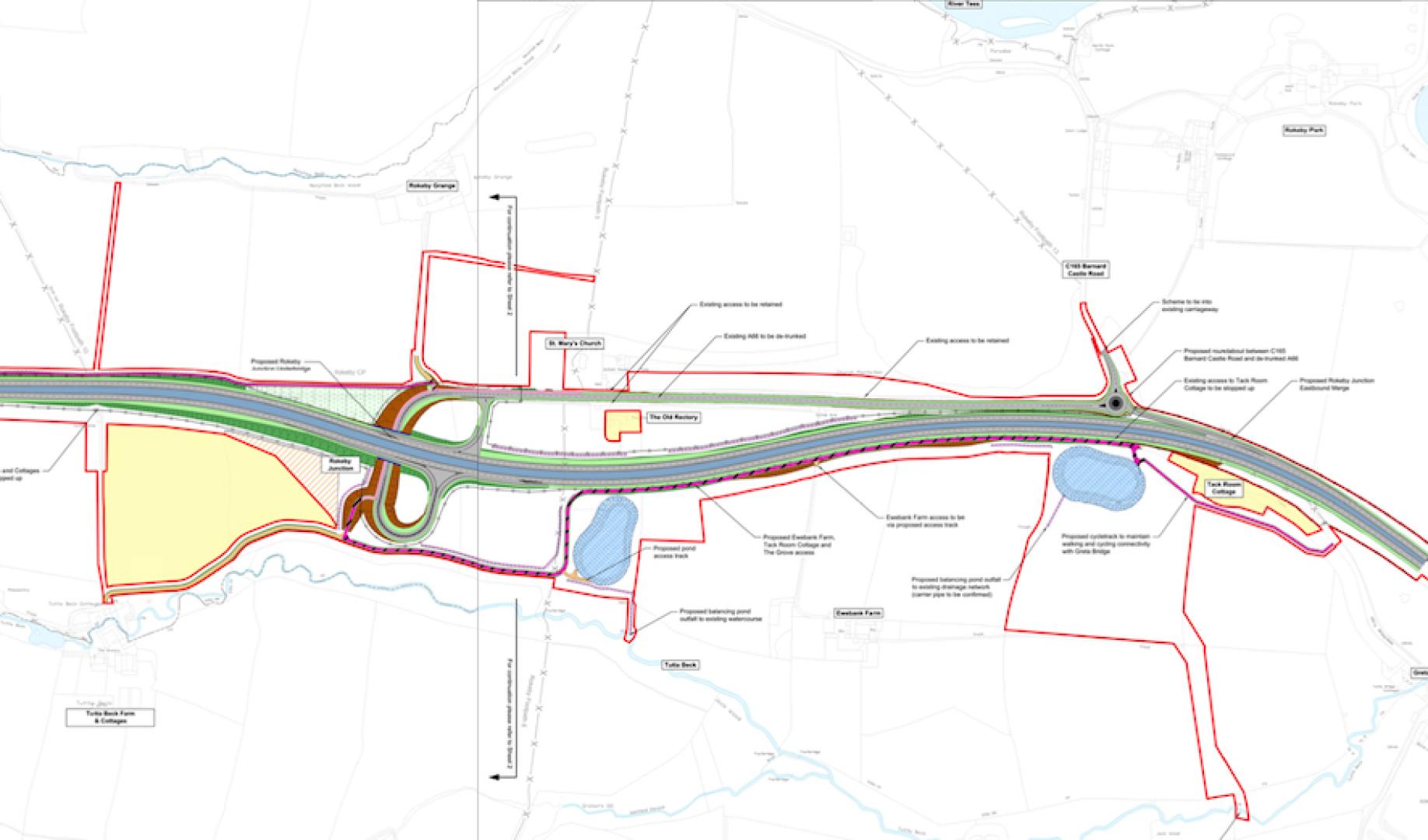CAMPAIGN groups want to “mitigate” the impact of changes to the Rokeby junction when work to upgrade the A66 begins later this year.
Mayor of Barnard Castle Cllr Laura Drew told members during their latest meeting that work is expected to begin in September after a development consent order (DCO) was granted last month.
She said: “Unfortunately, they have gone with [National Highways’ preferred] route rather than [our preferred] route (pictured). So, the focus among stakeholders is now to try to mitigate as many of the downsides of the project as possible.
“Basically, they will move the Rokeby junction towards Cross Lanes, so if you are coming from Scotch Corner it’s that-mile-and-a-half that you go past the junction, and then a mile-and-a-half back, at which point you might as well drive the extra two miles to Cross Lanes.”
Campaigners say this will lead to an unsafe increase in traffic onto the narrow and winding road at The Sills, in Startforth.
Cllr Drew added that there is still time to lobby for measures because work on more straightforward sections of the A66 is likely to begin first, before more complicated developments, like Rokeby junction, are undertaken.
Cllr Chris Foote-Wood said it was unfortunate that views of local people on the position of the Rokeby junction did not carry more weight when the secretary of state issued the DCO.
He added: “I think this an example of government and officials in Westminster who do not know the area, do not understand what is happening and do not take notice of local opinion. I think the local opinion was almost unanimous.
“They have done it on the basis of supposed historic trees.
“Well, the historic trees are a straggle of overgrown trees and bushes, a narrow strip alongside the road which has no intrinsic value at all.
“To put the benefits of the local area behind that supposed historic woodland is completely wrong.”
The mayor said she suspected more weight was given to Historic England’s objection to the locally preferred route because National Highways lost a High Court case about an A road construction near Stonehenge.





